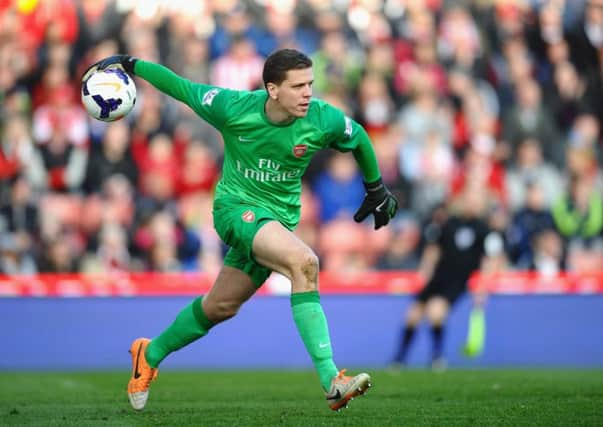SFA backs ‘triple punishment’ for scoring chances


The issue – penalty, red card and suspension – has become increasing contentious but a campaign by UEFA to scrap it fell on deaf ears as the game’s traditionally conservative lawmakers opted to retain the status quo.
“There are problems in trying to deliver more consistency because we do accept that mistakes are made in the application of the rule,” said SFA chief executive Stewart Regan. “But denying an obvious goalscoring opportunity is a red card offence… and the referee has to make that decision.
Advertisement
Hide AdAdvertisement
Hide Ad“It’s such an important and emotive topic for players and clubs that we don’t want to flip-flop back to where it was. There were cynical tackles, particularly by goalkeepers and, if they know they cannot be sent off, they will simply take out the attacker. When you have a situation like that sometimes a penalty is a more difficult task [than an open goal]. We know it’s a major topic the football community feels strongly about but it is so complex and will have such an impact that we’ve got to get it right.”
Alex Horne, chief executive of the English FA, said he too felt the rule should stay as it is. “It was introduced post the 1990 World Cup to stop cynical tackles and all of us felt that taking UEFA’s wording carte blanche would reopen the door to cynical fouls,” Horne said. “This isn’t to say we don’t understand the issues. We had a long debate about whether we could reinterpret what constitutes a ‘goalscoring opportunity.’ That is clearly a red-card offence. We think our decision is the right thing to do… we should remove it only very, very cautiously.”
Jerome Valcke, FIFA’s secretary-general, said: “There was a lot of discussion that the proposal would increase the potential for cynical fouls so the request from UEFA was not approved.”
Meanwhile, the idea of rugby-style sin-bins, also favoured by UEFA president Michel Platini, gained only lukewarm support among members of the International FA Board that comprises FIFA and the four home associations.
It was decided that sinbins should continue on an experimental basis at youth level but there was little enthusiasm for wider implementation.
One move that did go through was a decision to outlaw players from displaying any messages on their undergarments – even if they are in a good cause.
From 1 June, in other words before the start of the World Cup, players will be barred from displaying any personal slogans – and it will be up to competition authorities to decide what action to take if they break the new rule.
Personal messages on shirts have even been used by players to pay tribute to deceased colleagues, as well as light-hearted or humanitarian slogans.
Advertisement
Hide AdAdvertisement
Hide AdBut defending the ban, Horne said: “The idea is to get some consistency. The simplest rule for the image of the game is to start from the basis that slogans will not be allowed.”
Jonathan Ford, chief executive of the Welsh FA, said: “Everyone agreed about political or religious statements but on personal statements some of us did consider how far are we going,” said Ford. “But we decided it was easier for us to say it has no place in the game. With all the different languages in football, how you determine what is right and wrong between different countries and cultures is very complicated.”
Regan, meanwhile, backed an ongoing pilot scheme to allow rolling substitutions on a flexible basis at amateur level which, he said, had increased participation throughout Scottish recreational football. “It’s been a huge success,” said Regan. “Eighty per cent of coaches who have used it say it has increased the ability to give players a game.”
Finally the very concept of video replays was kicked into touch as Valcke declared it had no chance of following goalline technology into the rule book – a timely remark with the World Cup just four months away.